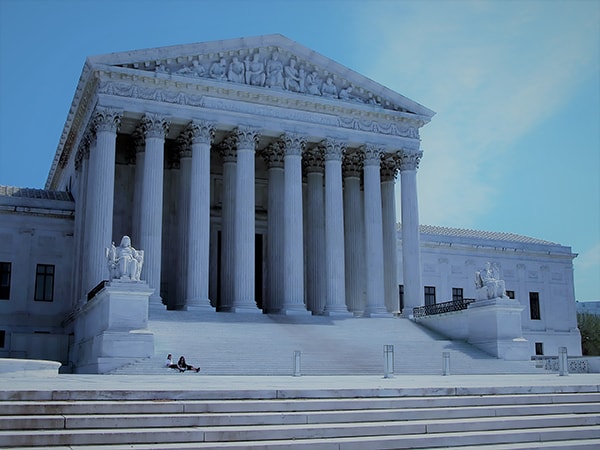Indiana Federal Criminal Appeals Attorneys: Advocates With Impact
We Are Federal Criminal Appeals
The government has made a coordinated investigation. The federal prosecutor decided to bring a long-list of trumped-up charges. A plea bargain was offered and refused. The long and tedious trial ensued. The gavel dropped – guilty. You appeared with your trial counsel at the sentencing hearing only to learn that the harshest of sentences had not only been recommended by the government, but also accepted by the trial court. However, you are now left feeling that the process was unfair, the trial one-sided and the sentence cruel and unusual. What can you do if you think a mistake has been made?
Contact our Indiana Federal Criminal Appeals Lawyers for a free consultation at 1-800-APPEALS.
We are a boutique law firm experienced in protecting individual and corporate clients in complex federal criminal appeals and post-conviction relief. We serve Fort Wayne, Indianapolis, South Bend and any other city in Indiana where a Federal crime originated. And because we are admitted in the Seventh Circuit Court of Appeals, as well as the Supreme Court of the United States in Washington, D.C., we can represent you in appealing your federal criminal conviction all the way to the Nation’s highest Court. We have helped many people seek some of the following post-conviction relief:
- A direct appeal of your conviction, sentence or both;
- A collateral appeal raising issues outside of the trial court record;
- Motions for reconsideration seeking an acquittal, a new trial, an arrest of judgment or a sentence modification;
- Section 2254 and 2255 motions to vacate a conviction or sentence based upon new evidence, known as Writs of Habeas Corpus;
- Motions for leniency, clemency or a pardon;
Indiana Federal Criminal Appeals Lawyers Emphasize Quality over Quantity
The first thing that you must do is immediately contact an experienced federal criminal appeals lawyer to speak about your case and your options. Why? Because your best defense against an illegal conviction, sentence or both is to file a direct appeal. But, in order to do that, you must preserve your right to appeal by filing a Notice of Appeal within 14-days of the entry of the judgment or order that you are appealing. This is only the start of the appellate process.
An appeal is much different than a trial, and the skills required by an appellate attorney are much broader than those of a trial attorney. A trial is about ascertaining the factual strengths and weaknesses of both sides of a case and then evaluating evidence. Appellate attorneys will do this as well when evaluating post-conviction relief options. However, an appellate attorney deals primarily with law because an appeal is about highlighting prejudicial legal errors. Trial attorneys make arguments to judges and juries, while appellate attorneys present arguments to a panel of judges. For judgments originating in Indiana federal courts, the panel of judges sits on the Seventh Circuit Court of Appeals. Trial attorneys take testimony and make objections during a live trial. Appeals and post-conviction relief are presented through a written brief. Both trial attorneys and appellate attorneys must be familiar with criminal and evidentiary law, as well as trial court procedures. However, appellate attorneys require a deeper understanding of the technical issues involving the application and interpretation of statutory and case law, the appellate process and procedure and the nuances of constitutional law.
The federal appeal attorneys at our boutique firm are dedicated to defending your rights on appeal. We have experience in a wide-range of federal criminal appeals including the following:
- Cybercrimes including Internet stalking, hacking and identity theft;
- Crimes committed in Indian Country;
- Crimes relating to drugs, controlled substances and narcotics;
- Civil rights crimes including disability rights, fair housing and human trafficking;
- Financial fraud such as securities fraud, healthcare fraud, mortgage fraud and bankruptcy fraud;
- Crimes involving violation of national security and terrorism;
- Crimes against children including sexual exploitation; and
- Violent crimes, arson and bank robbery.
Indiana Federal Criminal Appeals Attorneys Are in Your Corner
We also have experience finding and raising constitutional issues and violations committed by the police, the prosecution or the trial court include the following:
- U.S. Sentencing Guidelines;
- Evidentiary Rules (Federal Rules of Evidence);
- Dog sniff searches (4th Amendment);
- Home searches, business searches and curtilage searches (4th Amendment);
- Search and Seizure Statutes (4th Amendment);
- Arrest Warrants (4th Amendment);
- Due Process Rights (5th Amendment);
- Miranda Rights (5th Amendment);
- Right to Effective Assistance of Counsel (6th Amendment); and
- Excessive Sentencing and Cruel & Unusual Punishment (8th Amendment).
Our goal on appeal is to work with you to review the trial court record, to outline your options, to establish an appellate strategy and to write a clear, concise and persuasive appellate brief. We want to give your post-conviction appeal every opportunity to convince the panel of judges to reverse the conviction, modify the sentence or remand the action back to the trial court for a new trial or hearing. This means that we will appear at oral argument, when requested, to explain the merits of your case to the court and to offer solutions. Even if your direct appeal is not successful, there are still avenues to pursue in order to right the wrong.
It is our pleasure and duty to defend your life, liberty and property against injustice.
